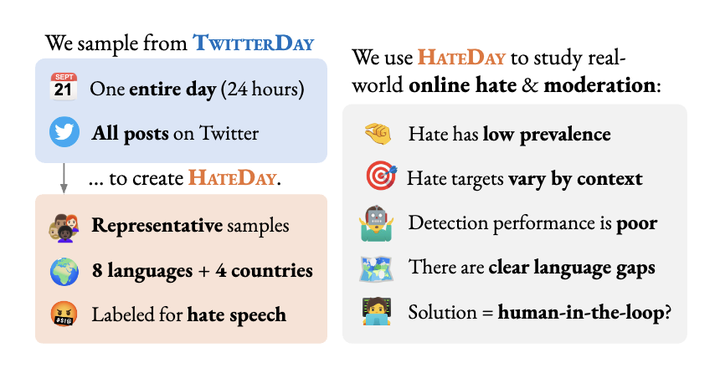 Insights from a Global Hate Speech Dataset
Insights from a Global Hate Speech Dataset
Abstract
To address the global challenge of online hate speech, prior research has developed detection models to flag such content on social media. However, due to systematic biases in evaluation datasets, the real-world effectiveness of these models remains unclear, particularly across geographies. We introduce HateDay, the first global hate speech dataset representative of social media settings, constructed from a random sample of all tweets posted on September 21, 2022 and covering eight languages and four English-speaking countries. Using HateDay, we uncover substantial variation in the prevalence and composition of hate speech across languages and regions. We show that evaluations on academic datasets greatly overestimate real-world detection performance, which we find is very low, especially for non-European languages. Our analysis identifies key drivers of this gap, including models’ difficulty to distinguish hate from offensive speech and a mismatch between the target groups emphasized in academic datasets and those most frequently targeted in real-world settings. We argue that poor model performance makes public models ill-suited for automatic hate speech moderation and find that high moderation rates are only achievable with substantial human oversight. Our results underscore the need to evaluate detection systems on data that reflects the complexity and diversity of real-world social media.